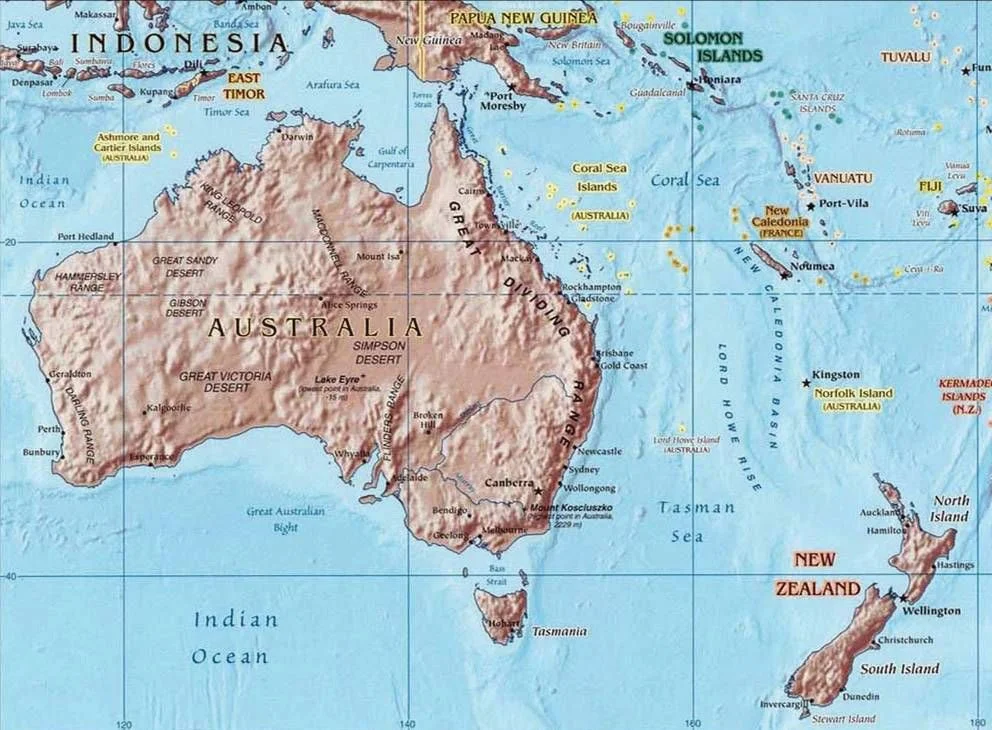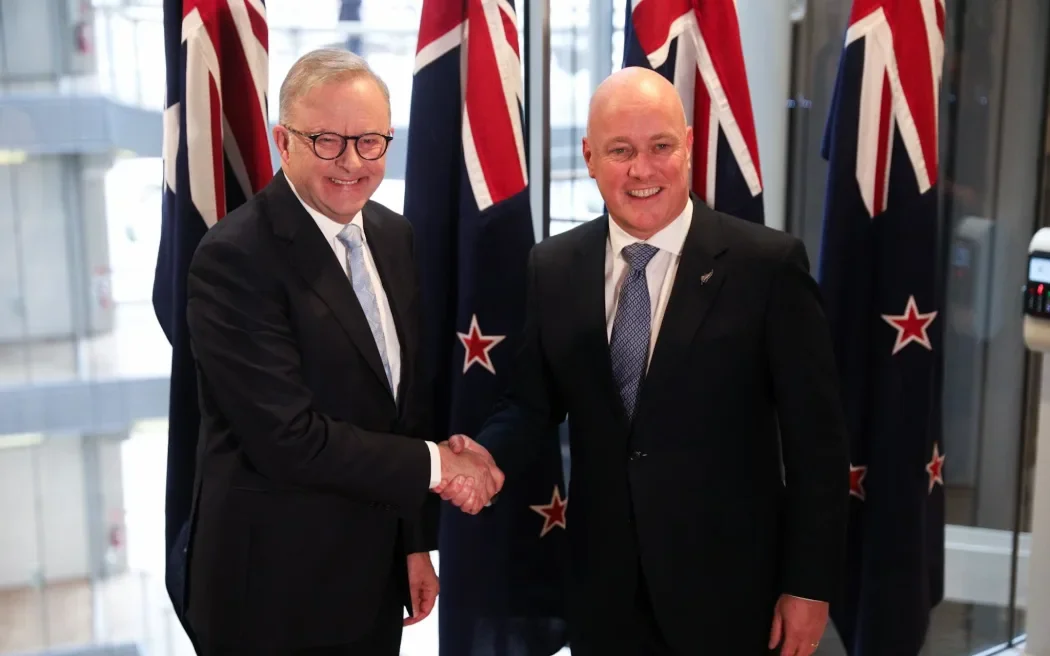Could New Zealand Join Australia? The Case for (and Against) a Trans-Tasman Union
Australia & New Zealand
For decades, Australia and New Zealand have shared much more than just a stretch of ocean. The two nations are bound by history, migration, trade, and culture. Yet, every few years, the old question resurfaces: should New Zealand join Australia — or even become a state within the Commonwealth of Australia?
A Shared Past and a Common Destiny
When Australia’s constitution was drafted in the late 19th century, New Zealand was actually invited to join the federation. It declined, largely because of distance, identity, and a desire to chart its own course. Still, the bond never broke. Today, the two countries enjoy one of the closest relationships in the world — with open borders for citizens, shared military ties, and a near-seamless economic partnership through the Closer Economic Relations agreement.
The Case for Unification
Christopher Luxon & Anthony Albanese at a Meeting // RNZ
Proponents of union argue that Australia and New Zealand are already functioning as one system in many ways. Citizens can live and work freely across the Tasman, and businesses operate under almost identical regulations. Joining forces could mean greater political power on the global stage, streamlined governance, and a stronger combined economy. A unified Australia–New Zealand bloc would boast over 32 million people and rank among the world’s top 10 economies by GDP.
The Case Against It
However, critics say such a move would erase New Zealand’s unique cultural and political identity. New Zealand has charted a more socially progressive path than Australia — leading the world in women’s suffrage, nuclear-free policies, and climate action. Many Kiwis would resist giving up that independence, especially if it meant becoming just another state within a larger federation. There’s also the matter of Māori representation, which could be diluted under a shared government system.
Opinion: Unity Sounds Good, But Independence Means More
While the idea of a “United States of Australasia” is fascinating, it overlooks what makes New Zealand special — its independence of thought and action. The two nations’ differences are what make their friendship work. Australia thrives on scale and ambition; New Zealand excels in balance and innovation. Joining the two could risk flattening those contrasts into a single, less distinctive identity. Cooperation, not unification, is the smarter path forward — a partnership of equals rather than one of absorption.
A Friendship That Doesn’t Need a Merger
The reality is, Australia and New Zealand already share nearly all the benefits of unity without the complications of merger. Open borders, shared defense, and deep cultural ties make them family in all but name. Perhaps that’s the best arrangement of all — two nations, standing side by side, proving that closeness doesn’t require sameness.


